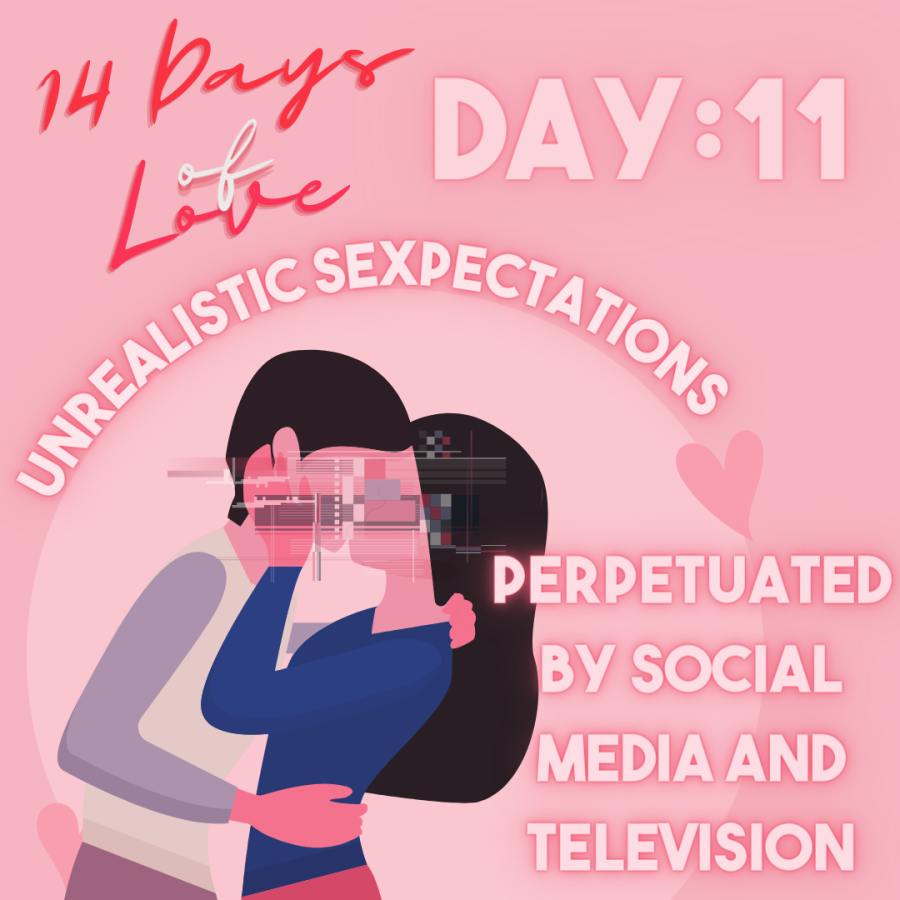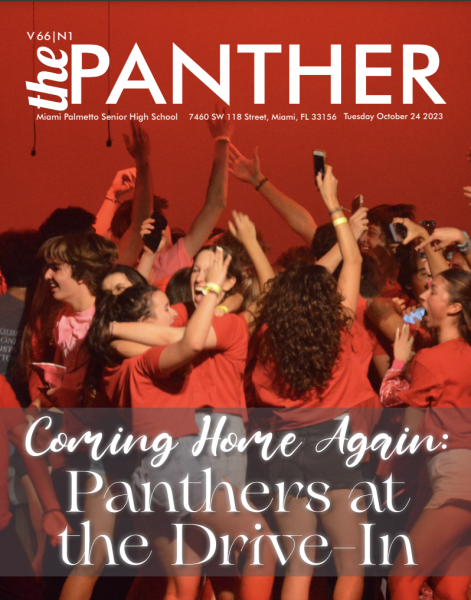14 Days of Love Day 11: Unrealistic ‘Sex’pectations Perpetuated By Televison And Social Media
February 11, 2022
Sex sells. We see it everywhere: television shows, social media, songs, music videos, advertisements and more. For most people, the first time they learn about sex is through a screen. This means that people are introduced to a distorted version of sex catered towards the entertainment of viewers and keeping plotlines interesting. Young audiences who have not yet had real-life sexual experiences absorb what they see on their screens and develop unrealistic expectations for what their own sex lives should look like. While this may not seem that harmful, young audiences grow up and go into the world unprepared with false conceptions and preconceived notions, which can affect the viewers’ mental health, physical health and personal relationships.
As teenagers become exposed to the world of sex and relationships, they turn to what they have watched on teen drama shows. Between 1998 and 2005, the number of sexual scenes on T.V. nearly doubled, making the portrayal of sex on T.V. the baseline for teenagers’ sex and intimacy expectations. Teen dramas such as “Riverdale,” “Euphoria” and “Gossip Girl” broadcast the message that sex is a life-changing, magical act, thereby encouraging real-life viewers to want to partake in it themselves.
T.V. shows, especially recent ones that focus on the current social and cultural climate, feature characters viewers can easily relate to, causing viewers to believe that what they see on T.V. is accurate in real life and that they are somehow inferior if their life does not match fictional lives.
In teen dramas, viewers see high schoolers regularly having sex and being involved in serious relationships, which is not necessarily representative of most students’ experiences or maturity levels. Viewers begin seeing sex as an act they should desire or as an act that would make their life more interesting Consumers strive to become what they see in the media, which can be detrimental to self image and real life experiences.
Moreover, studies have shown that consuming media has been linked to adolescents’ rushing of sex, contributing to the rise in teenage pregnancies. When the image of sex in the media causes the viewer to feel pressured into having sex, the viewer can make risky choices and go into their relationships with only what they have seen on T.V. as their guidebook. This can lead to sexually transmitted diseases, negative self image or harm to personal relationships.
The media and its portrayal of sex is rooted in double standards for different genders and sexualities.
On T.V. screens, we see attractive women in their 20s to 30s wearing professionally-done makeup who have fully grown into their bodies playing teenage girls. 60% of animated media, such as video games, sexualizes women, portraying them with exaggerated features and barely-there outfits, painting the picture that females exist for the sole purpose of entertaining men. This portrayal of women has made its way into real life, making some viewers believe that women only exist for male enjoyment and pleasure.
Characters in television place heavy emphasis on virginity and regard sex as something that takes away a woman’s “purity.” Putting such emphasis on virginity means that women hold their “first time” to an unrealistically high standard and view it as a pivotal point in their life. In the eyes of men, when a woman loses her virginity, she is no longer pure, and the more men she has sex with, the less value she believes she holds.
For men, the media portrays sex as a tool to prove masculinity with the number of people they have had sex with being indicative of manliness.
For anyone who does not identify as straight and cisgender, sex on T.V. is unrepresentative. The media portrays the experience as something that should be done behind backs and transforms something that should be intimate into something taboo.
Whetelevision s constantly pushes expectations onto people their own personal relationships are affected since they can not recreate the lives they see on television. This leads them to feel that perhaps their relationships are uneventful or inadequate. It is important to recognize these stereotypes and how they affect our real lives since many people use what they see on their screens as the template for what their lives should look like.












